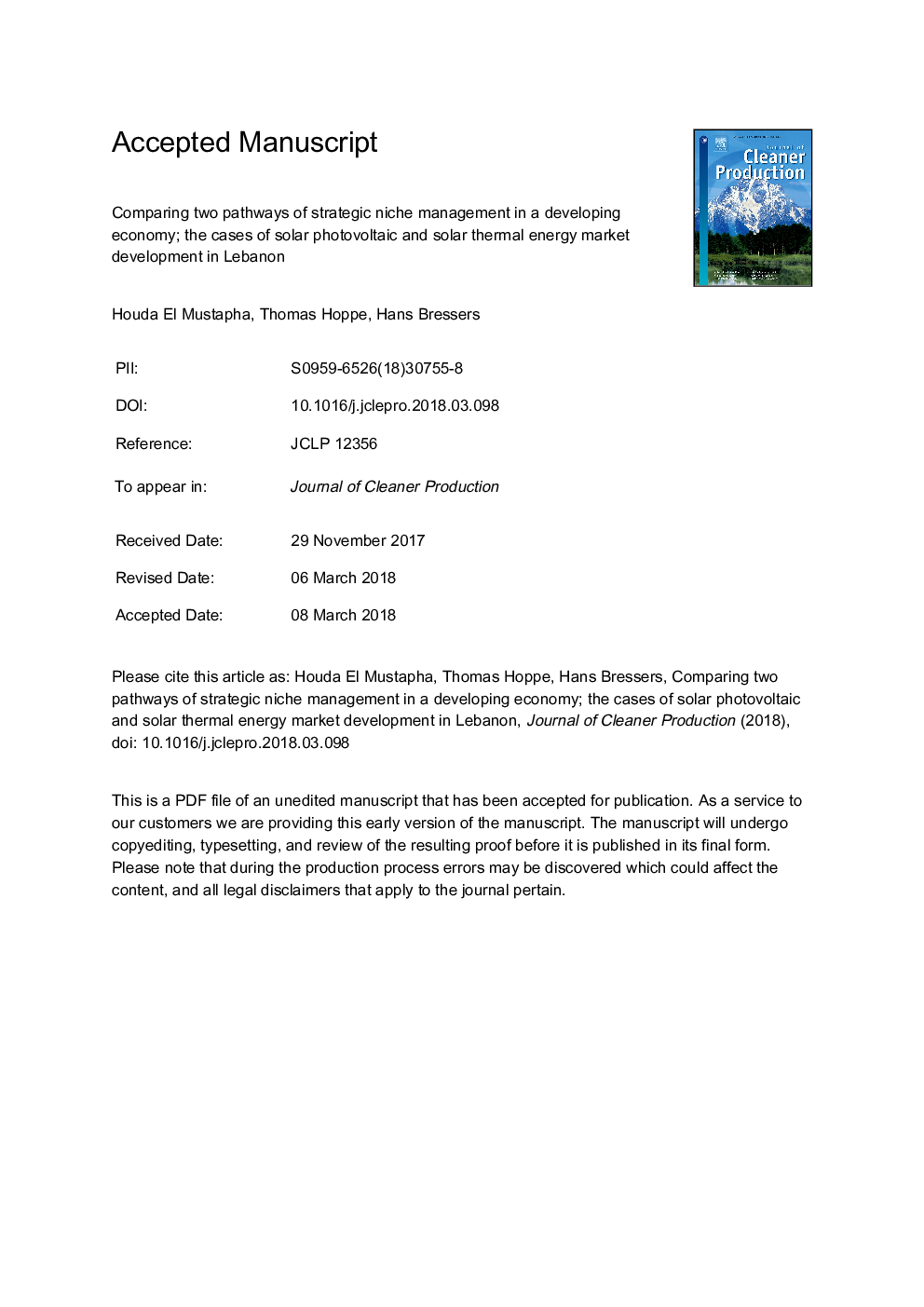| Article ID | Journal | Published Year | Pages | File Type |
|---|---|---|---|---|
| 8096131 | Journal of Cleaner Production | 2018 | 33 Pages |
Abstract
There is abundant solar potential in the Middle East North Africa region. Yet access to sustainable energy is still a fundamental challenge in many countries of this region. In this paper we seek to understand the success and failure of the development and the diffusion of solar energy technologies by analysing using a Strategic Niche Management framework to compare the niche development of solar thermal energy and solar photovoltaics in Lebanon. This paper has two main questions: (1) How have the solar thermal niche and the solar photovoltaic niche developed in Lebanon, and how do they compare? (2) In which ways does the Strategic Niche Management framework help us to understand the development of solar energy niches in a developing country context? To answer these questions, a cross case analysis of solar thermal and solar photovoltaic systems was conducted. Due to the absence of research using Strategic Niche Management in Middle Eastern developing countries, this study uses an illustrative case from a country in this region to contribute new insights. Moreover, unlike the Strategic Niche Management research that only focuses on single case studies, this paper presents the results of a comparative study of two niches. The main Strategic Niche Management propositions were grouped and compared per item (i.e. on voicing and shaping expectations, social networks, and learning). The results show that the solar thermal niche affected the solar photovoltaic niche to a large extent. This was especially in relation to the learning and coordination processes. This has gradually contributed to establishing a clear vision. However, both niches lacked a niche manager who was able to coordinate, manage and maintain the dynamics of the niche processes. It also lacked horizontal collaboration between key actors involved (i.e. ministries). International donors were found to play a crucial role in initiating and shaping the market with certain constraints of prioritization in the region. The paper ends with conclusions and ideas for future research on solar energy niche development in the context of developing countries.
Related Topics
Physical Sciences and Engineering
Energy
Renewable Energy, Sustainability and the Environment
Authors
Houda Elmustapha, Thomas Hoppe, Hans Bressers,
